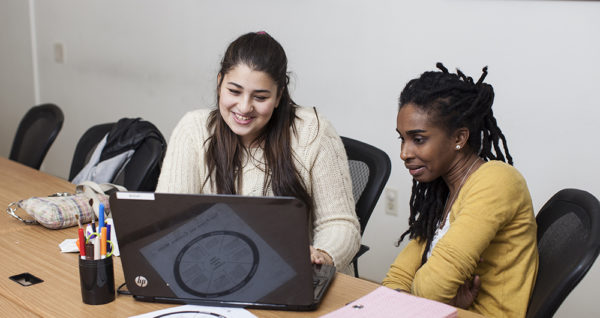At this year’s Above & Beyond Pro Bono Achievement Awards and Benefit, Sanctuary for Families is honoring a team of Debevoise attorneys for their brilliant and effective advocacy on behalf of Rebecca. The Debevoise team worked tirelessly to help Rebecca win full custody of her son, an order of protection from her abuser, and a substantial child support award.
Brenna Rabinowitz is an associate at Freshfields Bruckhaus Deringer LLP. She is the Membership Chair of Sanctuary’s Pro Bono Council.
—
At this year’s Above & Beyond Pro Bono Achievement Awards and Benefit, Sanctuary for Families is honoring a team of Debevoise attorneys for their brilliant and effective advocacy on behalf of Rebecca. The Debevoise team worked tirelessly to help Rebecca win full custody of her son, an order of protection from her abuser, and a substantial child support award.
This dedicated team included partner Sean Hecker, associates Anna Domyancic, John Pierpont (now an AUSA at the Connecticut US Attorney’s office), Ashley Fillmore, Marisa Taney (now clerking in Miami), law clerk Rhianna Hoover, and litigation analyst Lesley Douglas.
Deceived by her Abuser
Rebecca moved to the United States in 2011 after waiting seven years to get a visa in her home country of Nigeria. She described the day she got her visa as a “dream come true” and explained that, though it was hard to leave her family, she decided to leave Nigeria in pursuit of a better life for her and her young daughter. Rebecca had to leave her daughter in Nigeria temporarily but vowed to return for her as soon as possible.
Soon after moving to this country without friends or family, Rebecca became involved with her abuser. It was only after Rebecca was several months pregnant with their child that he revealed he was a Level 3 sex offender, and had sexually abused his seven-year-old niece. Around the same time as this shocking revelation, he became aggressive, verbally abusive, jealous, and controlling. After Rebecca’s son was born, her abuser became physically violent, both at home and in public, often in the presence of their infant child. Frightened for her and her son’s safety, Rebecca contacted Sanctuary for Families in November 2014, seeking custody of her son and protection from her abuser.
Willing to go Above and Beyond
When the Debevoise team got Rebecca’s case through Dara Sheinfeld, former Director of Sanctuary’s Legal Project at the Manhattan and Bronx Family Justice Centers, they jumped into action. Initially they had agreed to represent Rebecca only in her family offense petition (FOP) and her custody cases, but when other issues arose the team eagerly stepped up and expanded their representation to address all of Rebecca’s legal needs.
The team appeared in court over 20 times on Rebecca’s FOP case alone, which included multiple hearings to secure the court’s permission for Rebecca to travel with her son to Nigeria to help bring her daughter to America, and another dozen or more times on her other matters. The team collectively spent hundreds of hours preparing for these appearances, including preparing multiple witnesses for cross-examination, practicing opening and closing statements, and gathering impeachment evidence to be used in cross-examining Rebecca’s abuser. The team also successfully represented Rebecca in child support proceedings, which resulted in doubling her support award.
Throughout these extensive preparations, Dara provided support and advice, even on late nights and weekends. Team members described Dara as a “great partner” throughout this process.
Positive Results
The team adeptly navigated Rebecca through a multi-year trial process. At one memorable juncture, they effectively used impeachment evidence against Rebecca’s abuser during a multi-day cross-examination when he attempted to deny the crimes for which he had been previously convicted.
Thanks to the Debevoise team’s hard work and dedication, Rebecca received a final order of protection, gained full custody of her son, received a support award sufficient to sustain her and her son, and, most importantly, achieved freedom and protection from her abuser. Rebecca’s daughter has also joined Rebecca and her son in the US.
The Debevoise team continues to represent Rebecca in her ongoing legal matters. Most recently, the team submitted a brief opposing an appeal filed by Rebecca’s abuser that challenges the five-year order of protection that Rebecca was granted. This dedicated Debevoise team remains committed to representing Rebecca as long as her fight continues.
The team’s work was life-changing for Rebecca. When Rebecca learned of their nomination for this award, she told Sanctuary that the Debevoise team members were her “heroes.”
—
Join us at our Above & Beyond celebration on October 17, 2017 at the Highline Ballroom as we honor the Debevoise team’s outstanding pro bono work. Learn more about the event here.
If you can’t join us, but would like to support Sanctuary for Family’s work, please consider making an Above & Beyond donation here.
